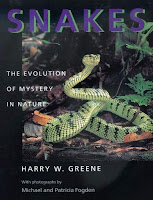After I ran out of the standard degrees, I attended classes at our local community college: photography, art (drawing, painting, printmaking), book design, web design, Russian, Spanish. Unfortunately, the college is on the semester system, and all my university work was in the quarter system, and without fail I started to lose focus round about 10–11 weeks. My intellectual circadian rhythm was established at UCLA, Berkeley, and the University of Wisconsin. But that's okay: I didn't care about grades, I was just in it for the self-furtherment.
I did go back for an MFA when I was in my forties. A friend of mine was applying for MFA programs, and she was considering Antioch University–Los Angeles. I thought, wouldn't it be fun to go together! So I applied too. I got in, she didn't (she's a playwright, and Antioch doesn't do playwriting; she eventually went to Goddard, a much better fit). By being accepted, though, I figured it was meant to be, so off I went to LA four times in two years, and got down to creative writing. I also made some lifelong friends (assisted by social media). Win-win!And then came along online educational opportunities: coursera, which offers a real mélange of subject matter but which I discovered when I was trying to figure out HTML coding; Code Academy, again, during my brief flirtation with web design; Stanford University Online, where I took a course on The Iliad—and made it halfway through that book thanks to the gentle enthusiasm of the professor, whose name I sadly don't recall. (I may never finish the book, which I was reading in duplicate—two different translations—but I did discover that Homer is very entertaining.)
I mention all this because just yesterday, on a whim—nudged by an email from our favorite travel company—I signed up for a free UC Santa Cruz class on the ecosystems of California, through coursera. It's not like I need anything new on my plate, and I already know quite a bit about California ecology. But I'm sure there's more to know! And since it won't all be brand new, it might just make for a pleasant way to spend half an hour or an hour every so often. It takes about 12 hours to complete, so if I pace it right, I might be done by the end of the month. It will make for a nice break from being productive (i.e., reading and writing with a purpose).
But if I want to just study something—for example, natural history—on my own, there are various books I've long meant to read (chiefly because I own them). For example, The Cornell Lab of Ornithology Handbook of Bird Biology, a textbook (which is used in the $239 online course "Ornithology: Comprehensive Bird Biology," which might actually help me process and digest what's in those 600-plus dense pages, but just reading the book is free), or the more generally geared Snakes: The Evolution of Mystery in Nature, by my friend Harry Greene, and Lizards: Windows to the Evolution of Diversity by Eric Pianka and Laurie Vitt. Or in the birds category, there's always the less rigorous What It's Like to Be a Bird by David Allen Sibley or Jennifer Ackerman's The Genius of Birds. And branching out, what about The Hidden Life of Trees by Peter Wohlleben or The Secret Life of Trees by Colin Judge (see what I did there?)? Or anything by Bernd Heinrich.I could, of course, construct a similar list for many other topics, because I own a lot of books that cover myriad realms. But I'd love to learn more about natural history. I never really had much biology in school, or ecology, or geology, and it feels like a lack. Maybe devoting some time to these things would be a good goal for this new year.
In any case, I've got California ecosystems queued up. We'll see if such learning becomes a new thread in my life.





1 comment:
Wow. You're not kidding when you call yourself a lifelong student!
Post a Comment